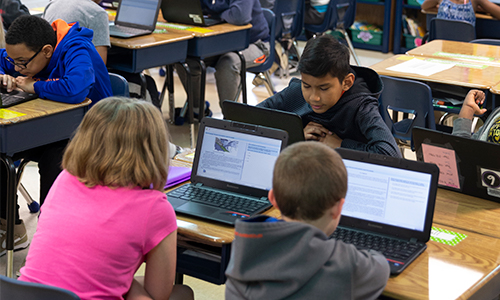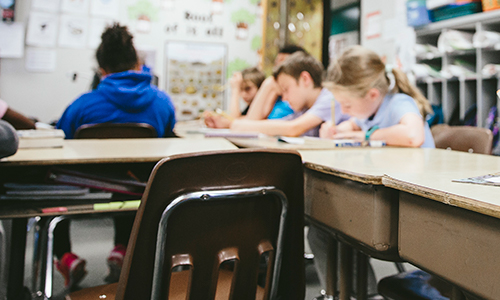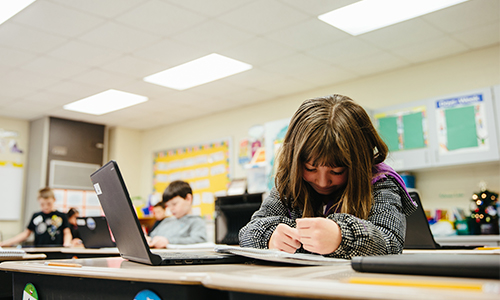School & test engagement
Educators need accurate assessment data to help students learn. But when students rapid-guess or otherwise disengage on tests the validity of scores can be affected. Our research examines the causes of test disengagement, how it relates to students’ overall academic engagement, and its impacts on individual test scores. We look at its effects on aggregated metrics used for school and teacher evaluations, achievement gap studies, and more. This research also explores better ways to measure and improve engagement and to help ensure that test scores more accurately reflect what students know and can do.


The impact of technology-enhanced items on test-taker disengagement
Can technology-enhanced items increase student engagement on assessments? A new study provides insight.
By: Steven Wise, James Soland, Laurence Dupray
Topics: School & test engagement, Innovations in reporting & assessment


Are achievement gap estimates biased by differential student test effort?
New research shows that test effort differs substantially across student gender and racial subgroups. What does this mean for achievement gap estimates?
By: James Soland
Topics: Equity, School & test engagement, Social-emotional learning


In partnership with Santa Ana Unified School District, we explore the impact of chronic absenteeism on student achievement over two years and whether missing 10% of days is too late to take action.
Topics: School & test engagement


In this study, we introduce those disengagement metrics for a policy and evaluation audience, including how disengagement might bias estimates of educational effectiveness. Analytically, we use data from a state administering a computer-based test to examine the effect of test disengagement on estimates of school contributions to student growth, achievement gaps, and summer learning loss.
By: Megan Kuhfeld, James Soland
Topics: Measurement & scaling, School & test engagement, Student growth & accountability policies


The relationship between test-taking disengagement and performance on MAP Growth retests
Educators sometimes ask: do students rapidly guess because they don’t know the answer to a question, or do rapid guesses reflect a lack of engagement with the test? Would a student’s scores improve if that student engaged more with the assessment and rapidly guessed on fewer items? Examining MAP® Growth™ test scores and levels of student test engagement for over 100,000 tests for which students retested within one day, the results showed that students’ test taking engagement often differed between the initial test and the retest.
By: Steven Wise
Topics: School & test engagement


Can item response times provide insight into students’ motivation and self-efficacy in math
What can we glean about students’ social-emotional learning from how long they spend on math test questions? New research shows promise and limitations of using response time metadata to measure SEL.
By: James Soland
Topics: School & test engagement, Math & STEM, Social-emotional learning


Measuring the impact of test disengagement on estimates of educational effectiveness
Learn more about our examination of student disengagement and how it may bias estimates of effectiveness based on observed test results.
By: Megan Kuhfeld, James Soland
Topics: Measurement & scaling, School & test engagement, Student growth & accountability policies


